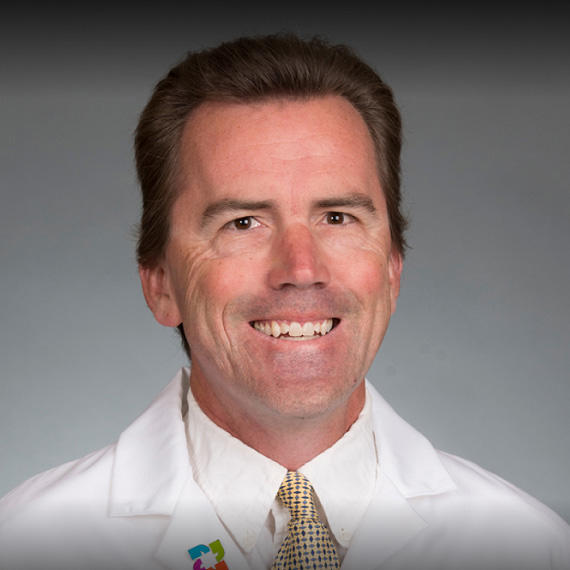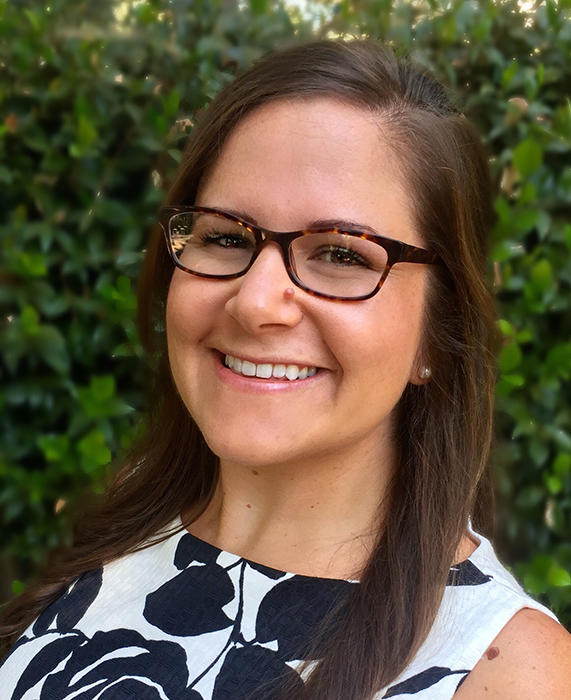In the off season, Dr. Brooks – an imposing figure at 6’5” and 265 pounds – was also a model and actor, appearing on several well known shows. You may have spotted him as a lifeguard on Beverly Hills 90210 and yep, that was him hiking the ball on HBO’s Arliss, in a scene with soccer star, Mia Hamm.
Today, Dr. Brooks is assistant professor of surgery and the Trauma Medical Director at Texas Tech University Health Sciences Center School of Medicine. In 2010, he received the American College of Surgeons (ACS) Resident Award for Exemplary Teaching. While the ACS has met annually for the past 96 years, Dr. Brooks was only the eighth recipient of this award and the first AUC graduate to receive the honor.
We chatted with him recently to hear more on his journey to AUC and beyond.
You had quite a lucrative and exciting life as a professional football player and actor, but always knew you wanted to be a doctor. How difficult was it to switch gears to study for the MCAT and then go to medical school on a Caribbean island?
That was a tough decision for me. It was a year-long process. I took a review course and made one round of applications in the states. I was told, ‘You have good grades and a decent MCAT score but you haven’t been in a classroom for six years.’
They suggested that I do a post-baccalaureate year or grad school. I thought to myself, ‘That’s a year of academics and another year of applying and going through this again.’ Fortunately, I had a friend who attended AUC and saw how successful he was, which was important because he got licensed in California, which is difficult. So, the question I had for myself was, ‘Do I spend two more years in graduate school or push ahead and go to AUC?’ The answer was easy. I knew St. Maarten had the best lifestyle and I had a friend who’d done well there. That was all that I needed. AUC’s three different admissions times [January, May and September] also worked for me. I didn’t want to lose another year.
Once on the island, how did you stay focused? What advice do you have for current students who may get distracted by the island’s temptations?
I don’t think students have more distractions than what they face here [in the states]. I would say if you are on the island, try to have a balanced life. I played basketball in a league with the island folks. We had a med student team. One of our players played pro basketball in Greece. We played against the locals and won a few tournaments. We had a really good team. I also went to the French side of the island and did Judo. My friends and I balanced medical school life with sports and had fun. We had chartered fishing trips, diving trips. St. Maarten has some of the best diving in the world. We took advantage of that stuff but never got distracted.
You did pretty well on your clinical rotations and had great comments from evaluators in every specialty, so how did you settle on surgery?
I tried to keep an open mind but I knew I liked surgery. There are people who hated anatomy but I loved it. I also worked really hard on all my rotations because I wanted to be a good and complete doctor. That’s served me well now. For example, as a general and trauma surgery resident, I’ve had to take care of pregnant women and you need to understand how to handle that. Paying attention to OB/GYN rotation as a student has made me a better surgery resident, and doing well in all your rotations is important because you need to push to become a good complete doctor. You’ll be surprised at how much you’ll need that. We don’t get to distinguish who our patients are in surgery, whether it’s an older person or a kid, and so all of that hard work pays off.
What advice would you offer to students considering surgery? What would you say program directors are most focused on when considering candidates for residency?
Do your homework and look at places that have a track record of having successful foreign grads in their programs.
Play the numbers game. General surgery is one of the most competitive residencies you can choose to do. There is either zero or only one unmatched categorical position in the country each year. No one scrambles into surgery, so apply to as many programs as you can financially afford, and go to the interviews to put yourself in front of people.
Part of your preparation is to ask someone professional to do some mock interviews with you before you do the actual thing. You can’t prepare to be good at something unless you “practice how you wanna play.” Learn how to look people in the eye and shake hands and practice the way you plan to perform.
What are some of the changes you’ve seen at AUC since you attended?
There wasn’t a lot of info on clinical rotation sites, the student access to all that stuff wasn’t as good so that accessibility has improved dramatically. Again, I didn’t really worry as much because I knew someone who’d attended AUC and had succeeded. Tutoring has definitely improved. I was one of the first anatomy TAs and now the TA program is extremely well organized.
Students have a lot more guidance and get so much more information from the Web than we did. Even the development of the alumni association has been a big deal. One of the reasons I talk to students who seek advice, is that even though we had no formal way of speaking to grads, I was able to get any advice I needed from that friend of mine.
The fact that students now have an option to talk to alums, and see what’s possible, goes a long way to putting prospective students at ease. The proof is in going out into the world and being successful and AUC has given us many good examples to look at. The education at AUC has always been good, but the biggest improvement is the support mechanisms that are now in place.
On winning the award and final words of advice
Getting a categorical position as a surgery resident was very competitive and it was tough to get in, so getting a general surgery categorical position as an AUC graduate and reinforcing that success by winning the American College of Surgeons teaching award, was a fantastic honor. I was blown away. These students I teach are very bright students and in order to teach well, you need to know your material. There is a difference between knowing something thoroughly and being able to articulate it well, so I’m glad I’ve been able to do that. At the end of the day, I love teaching and this award means that people have benefitted from my enthusiasm.
My AUC classmates and I have been a testament that you can do well with an AUC education. There’s no question. Hard work is a must, but success is absolutely possible and there are many AUC graduates who are examples of those successes.




